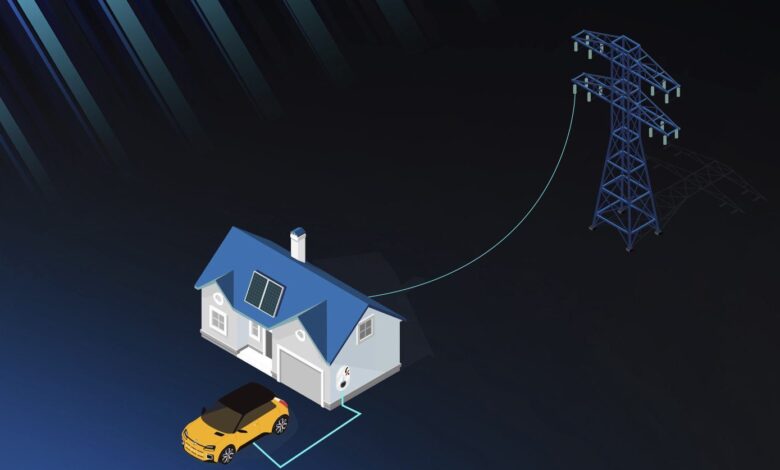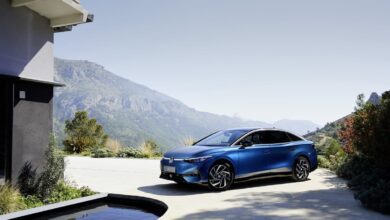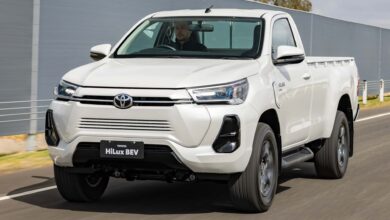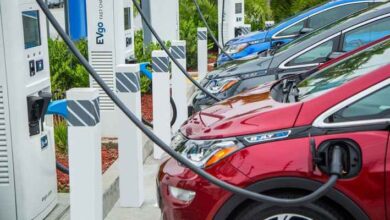Energy retailer Amber launches trial for bi-directional EV charging

The Australian Renewable Energy Agency (ARENA) has lobbed $3.2 million in funding to emerging retailer Amber Electric to trial electric vehicle (EV) smart charging and vehicle-to-grid (V2G) services with residential customers.
The $7.7 million, two-year trial will allow 1000 customers in ACT, New South Wales (NSW), Queensland, South Australia and Victoria to turn their EVs into ‘batteries on wheels’. It will kick-off in mid-2025.
Amber Electric is building the software needed to allow EVs to do bidirectional charging, and is planning to install 100 smart chargers and 50 V2G chargers into some participants’ homes, but homeowners will retain full control over their devices.
“With accelerating uptake of electric vehicles in Australia, this project will develop and demonstrate new ways for consumers to unlock value from their consumer energy resources and facilitate greater use of renewable energy,” said ARENA CEO Daren Miller.
Cheapest, largest storage option: ARENA
ARENA says EVs could be the “largest and lowest cost potential storage resource” in the energy transition.
“The near-term capital cost premium for enabling V2G (DC V2G) is estimated at around $25,000/MWh, or 6 per cent of current large-scale battery costs on a simple per MWh basis,” says an ARENA-backed study of V2G.
“The basis of this cost advantage is that the cost of enabling V2G is only a marginal increase in the cost of installing a V2G-capable charger. The battery comes with the car.”
Amber co-CEO Dan Adams says V2G and smart charging technology could be groundbreaking for the Australian energy sector.
“This technology represents a transformative leap for energy storage in Australia, and the energy system as a whole. By integrating electric vehicles with the grid and the wholesale energy market, we can reduce costs for consumers whilst accelerating the transition to renewable energy,” he said.
“Our customers will be able to directly compete with big coal and gas generators just by smart charging and discharging their EV battery. This innovation not only strengthens our energy infrastructure but also aligns with a commitment to a sustainable future.”
Amber Electric puts its customers directly in touch with wholesale pricing, meaning that they can benefit from using their own power when spot pricing is low and by selling back in when prices are high.
The program, however, is limited to owners of Nissan Leaf EVs and Mitsubishi Outlander plug in hybrids. They are the only ones with Chademo technology that enables V2G. Most other EVs use CCS charging architecture that do not yet have V2G protocols.
Policy lag
ARENA’s expectation is that the project will inform policy across Australia and encourage other industry participants to test bidirectional charging.
The V2X report found that V2G needs to become a national priority, given the low cost potential of EVs as a storage resource and because of the complete absence of Australia from international standards development and product certification processes for EV supply equipment.
“Network tariffs can make or break V2G. Networks should collaborate to develop more V2G-supportive tariffs to signal national coherence to international supply chain stakeholders. The most preferable current pricing arrangements are bidirectional network support tariffs,” the report said.
“V2G is most valuable when exposed to wholesale spot-pass-through arrangements.”
ARENA has been accused of promoting magical thinking around V2G, with Greenergenic cofounder Riccardo Pagliarella taking aim at the agency’s V2G earning estimate earlier this year of up to $12,000 per EV. He said that putting out claims like this without any underlying standards or policy available in the market was misleading to consumers.
Meanwhile, others suggest that bidirectional charging could be the death knell for virtual power plants (VPPs).
Tim Washington, the co-founder and CEO of one of Australia’s largest electric vehicle charging services, Jetcharge, told the SwitchedOn podcast this week that most Australians won’t take the extra step to participate in a VPP if they have a car battery that can do the same job.
Rachel Williamson is a science and business journalist, who focuses on climate change-related health and environmental issues.



